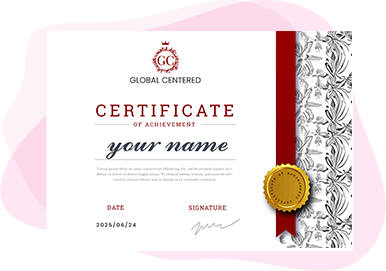GMETMR-Geochemical Exploration Techniques for Mineral Resources 02
Mar/2025
English
A course by
Description
Introduction
This intermediate-level course builds on fundamental geochemical knowledge, focusing on advanced data analysis, exploration geochemistry, and integration with other geological datasets. The training will emphasize the detection of concealed ore bodies using geochemical indicators and the development of geochemical exploration models for phosphate, gold, and bauxite deposits.
Date
Day | Time | Price | Country |
|---|---|---|---|
Mon – Wed | 8:00 – 10:00 | $5/hrs | Turkey |
Tue – Thu | 18:00 – 19:00 | $5/hrs | Turkey |
Wed – Fri | 20:00 – 21:00 | $5/hrs | Turkey |
Sat – Sun | 18:00 – 19:00 20:00 – 21:00 | $8/hrs | Turkey |
This Training Course Will Highlight
- Advanced geochemical survey design and anomaly detection.
- Interpretation of geochemical dispersion patterns in complex terrains.
- Integration of geochemical data with structural and geophysical datasets.
- Use of statistical and spatial analysis techniques in geochemistry.
- Exploration targeting and risk management using geochemical models.
Objectives
- Understand the fundamental principles of geochemical exploration.
- Learn about geochemical dispersion patterns and mineral pathfinders.
- Develop an understanding of geochemical sampling and analysis techniques.
- Identify and interpret basic geochemical anomalies in exploration.
- Recognize the importance of QA/QC procedures in geochemical data collection.
Training Methodology
- Instructor-led lectures on geochemical principles.
- Practical demonstrations of sample collection and preparation.
- Basic data processing and interpretation exercises.
- Fieldwork discussions on geochemical surveys in real-world exploration.
- Interactive Q&A sessions with geochemists.
- Case Study: Geochemical analysis of a phosphate, gold, or bauxite deposit.
Organizational Impact
- Enhances early-stage exploration capabilities through geochemical techniques.
- Improves targeting efficiency in mineral exploration programs.
- Strengthens exploration teams’ technical capabilities in geochemical data collection.
- Supports better decision-making in exploration project planning.
- Reduces exploration risks and improves efficiency in resource assessment.
Personal Impact
- Develops fundamental skills in geochemical sampling and analysis.
- Improves understanding of geochemical survey results.
- Strengthens knowledge of geochemical pathfinders in mineral deposits.
- Expands career opportunities in mineral exploration and economic geology.
- Builds confidence in basic geochemical data interpretation.
Who Should Attend?
- Entry-level geologists and mining engineers.
- Junior exploration geochemists in mining companies.
- Government and regulatory personnel involved in mining oversight.
- Environmental specialists working in geochemical baseline studies.
- Undergraduate geology and mining students.
- Technical staff in geological survey organizations.
- Professionals transitioning into the field of geochemical exploration.
Course Outline
Day 1
Advanced Geochemical Sampling and Survey Design- Designing effective geochemical surveys for different deposit types.
- Case studies on regional vs. detailed geochemical sampling strategies.
- Understanding geochemical mobility and secondary dispersion processes.
- Advanced QA/QC techniques in geochemical sampling.
- Geochemical prospectivity mapping and mineral exploration modeling.
- Geochemical exploration targeting for phosphate deposits
Day 2
Geochemical Analytical Techniques and Data Processing- ICP-MS vs. XRF – choosing the right analytical method.
- Mobile Metal Ion (MMI) geochemistry and partial leach analysis.
- Geochemical fingerprinting techniques and ore deposit modeling.
- Using pH, Eh, and conductivity data in geochemical exploration.
- Data management and geochemical database development.
- Geochemical prospecting for gold deposits.
Day 3
Geochemical Data Interpretation and Anomaly Detection- Geochemical anomaly classification – background, threshold, and ore-grade values.
- Multivariate statistical techniques – cluster analysis, principal component analysis (PCA), and factor analysis.
- Identification of geochemical signatures related to ore-forming processes.
- Pathfinder element associations for phosphate, gold, and bauxite deposits.
- Geochemical zonation and element dispersion patterns around mineralized systems.
- Application of statistical techniques in geochemical exploration.
Day 4
Geochemical Prospectivity Mapping and Data Integration- Integration of geochemical, geological, and geophysical datasets for mineral exploration.
- Using GIS-based geochemical mapping techniques.
- Geochemical grid sampling vs. contouring techniques.
- Multi-element geochemical vectoring towards ore deposits.
- Development of geochemical models for mineral prospectivity mapping.
- Predictive modeling for phosphate and bauxite exploration.
Day 5
Geochemistry for Exploration Targeting and Environmental Monitoring- Using geochemical data for direct exploration targeting – reducing exploration risk.
- Integration of geochemical data with drilling programs – optimizing drill hole locations.
- Environmental baseline geochemical studies for sustainable mining.
- Challenges in geochemical exploration – false anomalies and misinterpretation risks.
Cancellation policy
no refund is accepted
Certificate


Free
Skill level Intermediate
100% positive reviews
Language: English
Assessments: Self
Step Into a World of Knowledge and Growth
Imagine a place where learning is not just about theory
Courses you might be interested in
Introduction This advanced-level training program is designed for senior geologists, exploration geochemists, and mining professionals who seek to enhance their expertise in geochemical modeling, anomaly interpretation, and predictive mineral exploration...
-
0 Lessons
Free
Introduction This course provides a fundamental understanding of geochemical exploration techniques and their applications in mineral resource discovery. It introduces participants to the geochemical properties of ores, sampling methods, and...
-
0 Lessons
Free
Free

